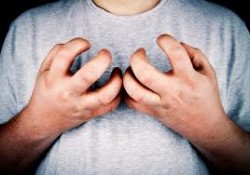
Speed is a powerful drug, and as an amphetamine –it can be quite addictive. If you or a loved one have been using it frequently, and think you may have developed a speed addiction, getting professional treatment is highly recommended. The longer you continue using speed, the more you risk causing damage to your system. Taking large doses can cause an overdose -which can lead to psychosis, or possible death.
According to the Drug Enforcement Administration, chronic abuse produces a psychosis that resembles schizophrenia and is characterized by: Paranoia, picking at the skin, preoccupation with one’s own thoughts, and auditory and visual hallucinations.
What are Some Signs of Speed Addiction?
The earlier you stop using speed, the less complications you risk to your physical and mental health. An addiction to speed will require professional treatment in order to safely stop using it. The dangerous effects of this drug can impact many aspects of a user’s life. If you are not fully aware of what the signs of addiction are, here are some of the common signs usually displayed by speed addicted individuals:
Signs of addiction to speed drug:
- Taking it more often regardless of outcome or consequences you may face later
- Stealing money to buy it
- Acting violent if you cannot get more speed
- Not interested in activities with family or close friends
- Having problems in personal relationship due to speed drug use
- Going into debt due to spending all your money buying speed
- Unable to stop thinking about the drug or the next hit
- Worried more about not having any more speed
- Lost job or got expelled from school due to speed drug use
- Feeling you cannot function daily without it
An addiction to speed can quickly develop, and trying suddenly to stop taking it can be difficult, and even dangerous. There are also other physical and psychological signs you need to be aware of –which may include:
Physical signs of speed drug addiction:

Tremors, skin problems, and psychosis are potential signs and consequences of an addiction to speed.
- Loss of appetite-which can lead to rapid weight loss, and cause malnutrition
- Nausea and/or vomiting
- Skin problems –itching, rashes, and other skin disorders
- Chest pain
- High blood pressure
- Disturbances in heart beat rate –too slow, or too fast
- Difficulty sleeping
- Tremors
- Dry mouth
- Hyperactivity
Psychological signs and symptoms of addiction to speed:
- Displaying hostility or aggression towards others –usually for no valid reason
- Hallucinations
- Speed induced psychosis
- Irritability
These signs and symptoms of speed addiction can have a negative impact on a user’s life –including those around them. It can cause stress on family members, tear relationships apart, and more. Some of the ways in can affect your life include:
- Difficulty functioning at work or school
- Loved ones, or close friends may become distant
- Getting in trouble with the law due to stealing, or violent behavior
- If you suffer from a mental illness the symptoms can get worse
Addiction can cause health complications that may be irreversible. The sooner you seek treatment to overcome an addiction to speed, the quicker you can be on the path to recovery and living a healthier lifestyle. To find out the treatment options available, contact a substance abuse specialist as soon as possible. Professional treatment can help a user avoid the painful withdrawal symptoms, and reduce the cravings associated with withdrawal.


